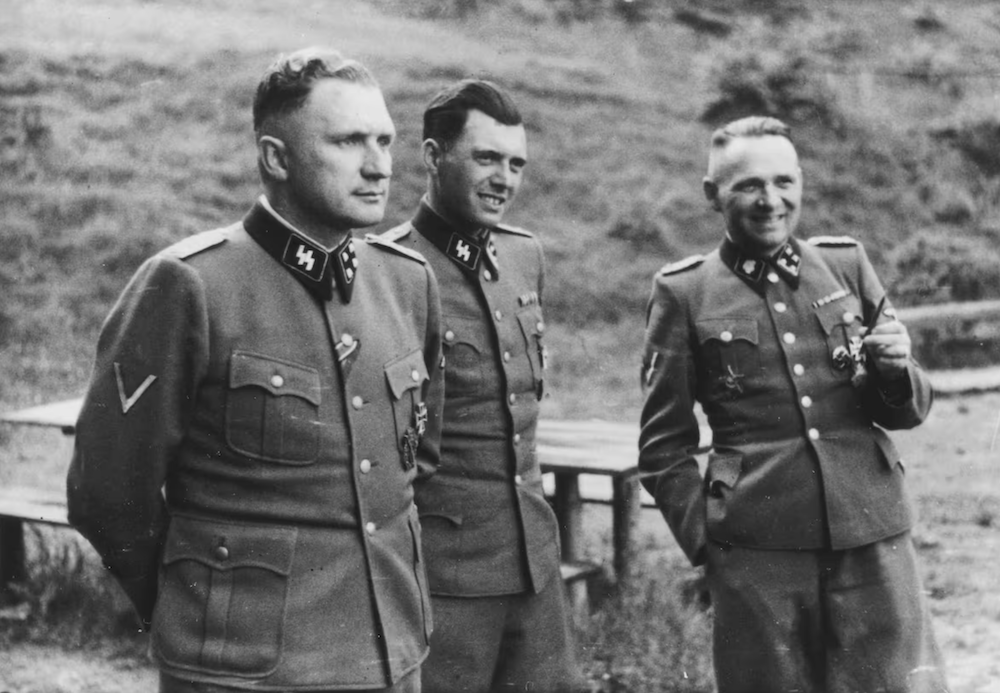
Government Shedding Light on Painful Past

Buenos Aires –– Argentina is once again confronting its painful legacy as a postwar refuge for Nazi fugitives.
On March 24, the government announced it will declassify a new trove of documents, including banking and financial records, that allegedly facilitated the escape and resettlement of high-ranking officials from Hitler’s regime in South America.
The decision, confirmed by Cabinet Chief Guillermo Francos, follows a meeting between President Javier Milei and representatives of the Simon Wiesenthal Center, a prominent human rights organization dedicated to tracking Nazi war criminals.
The Center presented Milei with a letter from the U.S. Senate Judiciary Committee, urging Argentina to cooperate in investigations into the role of financial institutions—most notably Credit Suisse—in aiding Nazi fugitives.
Unveiling the “Ratlines”
The files set for declassification are expected to shed new light on the so-called “ratlines”—clandestine escape networks that enabled thousands of Nazis and other fascist war criminals to evade justice after World War II. Historians estimate that up to 10,000 Nazis and collaborators fled to Argentina and other countries in the Americas, including Canada, the United States, and Mexico. Notorious figures such as Adolf Eichmann and Josef Mengele, the “Angel of Death” from Auschwitz, were among those who found sanctuary in Argentina before moving elsewhere in South America.

The escape routes often involved complex journeys through Germany, Spain, and Italy, with some routes receiving unofficial support from Vatican officials. These networks were not only used by Nazis but also by U.S. intelligence to relocate scientists for Cold War projects.
Financial Networks Under Scrutiny
A central focus of the declassified documents is the role of banking and financial operations in facilitating these escapes. The files are expected to include records from Argentina’s Defense Ministry and financial institutions, potentially revealing how money was transferred to support fugitives’ new lives in South America.
The Simon Wiesenthal Center has previously obtained a list of 12,000 Nazis living in Argentina, many of whom held accounts at what is now Credit Suisse. There are longstanding suspicions that some of these funds were looted from Holocaust victims.
The Argentine government’s move comes amid renewed international scrutiny. The U.S. Senate Judiciary Committee has specifically requested Argentina’s cooperation in investigating Credit Suisse’s alleged assistance to Nazi escapees, citing a 2021 internal probe that found “significant connections” between the bank and individuals involved in the ratlines.
Commitment to Transparency
President Milei’s initiative aligns with his broader commitment to government transparency and historical accountability. The declassified materials will be stored in Argentina’s General Archive of the Nation and made available for public and academic research. This step mirrors similar efforts in other countries, such as Israel’s recent release of documents related to the 1961 trial of Adolf Eichmann.
Human rights advocates and historians have welcomed the move as a potential watershed moment. “We’ve long suspected that key financial institutions helped facilitate these escapes, but this access could finally provide concrete evidence,” said Jim Berk, CEO of the Simon Wiesenthal Center.

A Painful Reckoning
Argentina’s role as a haven for Nazi fugitives has long been a source of controversy and national soul-searching. While some Argentine leaders in the 1930s and 1940s welcomed a growing Nazi presence, later governments attempted to investigate and curtail these activities—often with limited success due to political upheaval and the destruction of key records.
The declassification of these documents is seen as a crucial step in addressing this dark chapter of history. It offers the possibility of justice for Holocaust victims and their descendants, and a chance for Argentina to reckon with its past.
As the files are made public, researchers hope to gain a clearer understanding of the networks that enabled war criminals to evade prosecution and the local support systems that protected them. The revelations may also prompt further investigations into the complicity of financial institutions and the fate of assets looted during the Holocaust.
For Argentina, the process is both a moral obligation and an opportunity to demonstrate its commitment to transparency, justice, and the memory of those who suffered under the Nazi regime
Argentina Moves to Declassify Files on Nazi Escape Networks (April 15, 2025)